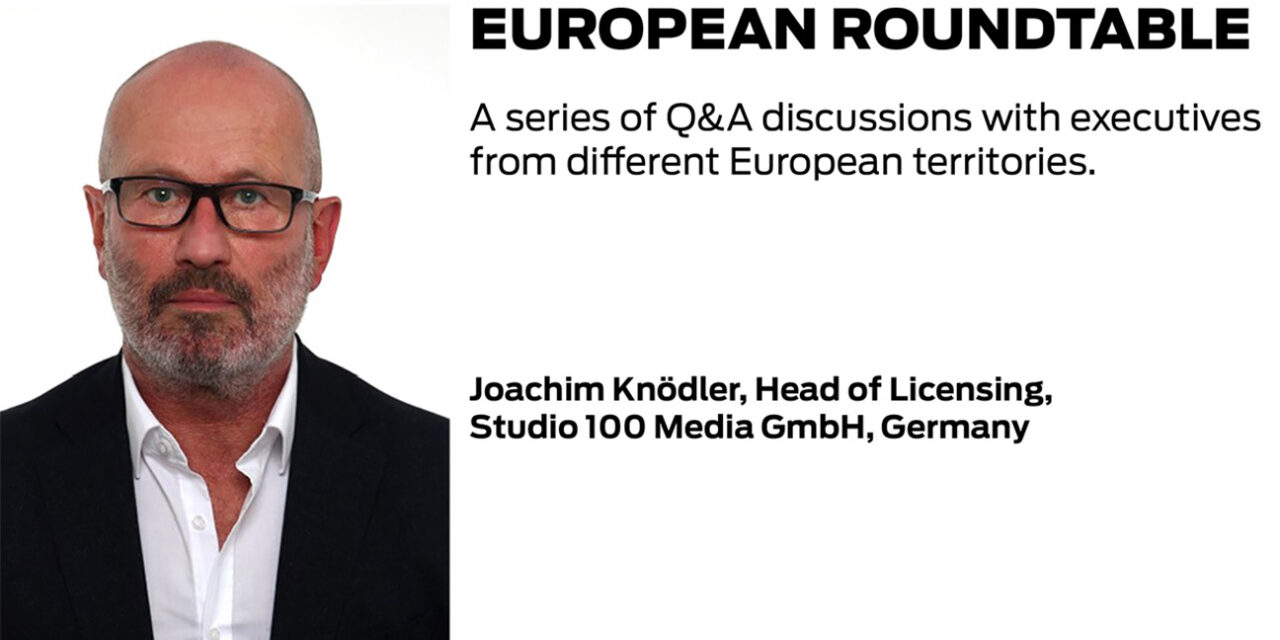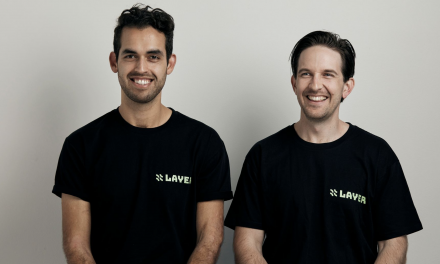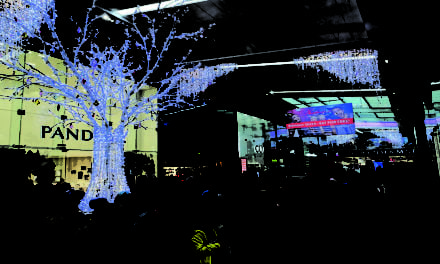
European Roundtable

How are you finding the licensing business in your territory?
Currently, we are phasing in many other European regions. High inflation has led to careful consumer spending of non-essentials. Higher prices in energy, gas, and fuel, as well as other monthly increases in consumer goods, have led to economical retraction in the last quarter – the outlook into the next quarter isn’t any better and consumer spending for licensed goods will be a challenge over the next quarter.
It’s difficult to say how long this situation will continue but there are hopeful signs for recovery in early 2023 given the fact that Germany still has a high employment rate.
And all the past recessions have shown that in the end, licensed goods have become a part of consumers’ lives – people still have trust in brands.
Has the UK leaving the EU affected your business in any way? If so, how?
To be honest I think everyone expected the impact to be much more intense. It’s of course, a pity that the UK is not a part of the EU anymore but nevertheless we need to deal with this fact. An important impact is that the registration of trademarks has to be done separately for the UK. Many retailers and multi territory-based licensees have made their adjustments and they are now prepared for the new situation so it is now up to all of us to deal with this fact as the UK will still be an important European market in licensing.
Supply chain issues because of Brexit and the conflict in Ukraine have become more difficult. Is this impacting on your business?
There is a mix of different factors – large retailers have cut orders from suppliers due to delays in the supply chains.
Due to the conflict in Ukraine and the issue of rising prices in the energy segment, the impact on the licensing business is quite significant. Brexit is impacting the business in a different way – in licensing the UK market needs to be seen as an independent/separate market. We at Studio 100 Media still have a footprint in this important market – for our new IP “Vegesaurs”. The UK market is a very focused market not only in terms of launch activities but also as a lead market for the rest of Europe as we are also partnering with publishing house McMillan on a worldwide base for this great IP.
Which product categories are the key to your market? Are there any new product categories that are emerging, or you can see will emerge in the near future?
There are a few categories and areas to look into in the near future. First, there is the “Revival of Retro”. At Studio 100 we are very enthusiastic about this trend, as within our portfolio we are kicking off with our all-time classic, 3rd party right Sesamestreet which will celebrate being 50 in 2023. We have initiated a new project together with our marketing colleagues to support this trend with Heroes of the Childhood – this project combines classics such as Tao Tao, the original Alice in Wonderland, Pinocchio, and Vic the Viking under one roof for licensing – appealing retro designs for fashion, home textile and gifting will reflect this massive trend. Other areas to watch carefully are Anime, Brands, Video, and Gaming in fact the entire Metaverse from a brand licensing and retail perspective – it will be essential to sell this as a combination of physical and digital products to consumers, as well as Streaming. I strongly believe that these trends will have the highest impact on licensing for 2023 and beyond.
A category still to watch is toys – especially ancillary toys. When consumer spending is down in other areas you still want to see your kids’ eyes light up when you buy them a toy.
How do you see the future of licensing in your territory? What growth opportunities can you see? Are there aspects of licensing in your territory that are unique to your country?
Licensing is a lot like taking a deep, long look into a crystal ball – especially now in these very challenging times with so many issues – I expect that brand collaborations will be an interesting licensing tool that has growing potential. The advantage of well-known brands is to create new products to excite and drive revenue with the trust of the consumer.
The growth opportunity will also be from the streaming business – this still remains a strong tool for licensing, with immediate access to more entertainment and product opportunities for fans. (combination of fashion & entertainment?)
Unique for Germany is still the sustainability aspect – personally, I believe this is now ready for the next level – not only in communication or product execution but covering the entire supply chain for a higher environmental impact. Positive footprint?
Studio 100 Media is taking this responsibility very seriously and believes in this with its own IPs, especially with Maya the Bee, and also with new IPs that we develop and those that we represent as 3rd party rights such as Sesame Workshop. In order to take the next big step, we have joined forces with a number of our licensees across multiple categories. One current partner is exceptional in leading activities in the fashion industry!:
Jutta Breyer with her company License Factory advanced the new challenges in the existing supply chain and can give us a deeper and more clear insight of the meaning of “social responsibility” and “sustainability” in the textile sector – two words which have become so “fashionable” in our marketing world.
The pandemic, ongoing climate change, and more recently the impact of the Ukraine war on our geopolitical situation and global trade have led to a greater emotional awareness of the survival of life, future generations, and our planet itself.
In consequence, more transparency is needed to measure the environmental footprint of any production process. A big problem is the jungle of certificates and the interests of big industries, which basically mislead people and create confusion and lack of understanding among consumers. On the other hand, we may miss the opportunity to promote truly sustainable products that respect the environment.
The fashion industry is responsible for 10% of annual global carbon emissions. Approx. 20% of wastewater worldwide comes from synthetic fabric dyeing and treatment only.
In our short presentation, we explain the negative impact of synthetic dying on our:
- Environment
- Labour/Employment situation
- Societies
We have no intention in blaming any individual industries or governments. We just want to offer a positive and constructive way out of the continuous process of contaminating soils and water resources avoiding hazard dyes and chemicals.
In terms of what “social responsibility” and “sustainability” mean, it is quite clear that we all need to be aware of what we consume and how we consume. Responsibility begins with each individual and their daily sustainable behavior and actions.
We understand that people want to make environmentally friendly choices in their daily lives and need to have access to reliable, verifiable, and comparable information about the products they buy and consume.
Firmly believing in our own responsibility, we have invested in switching from synthetic to natural dyeing processes and will present our first cotton collection in Spring/Summer 2023 in collaboration with responsible and open-minded licensors like Studio100.
















